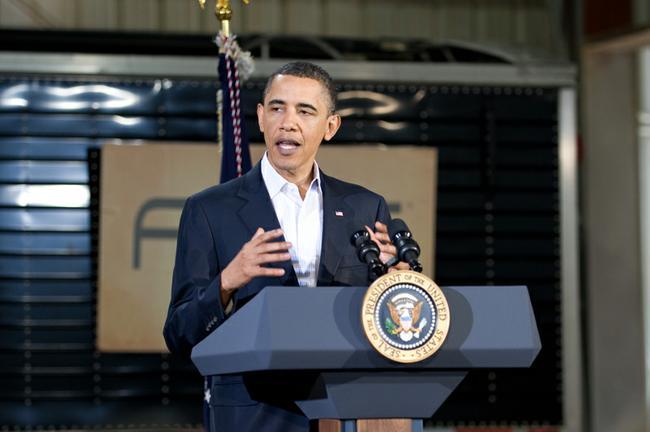President Barack Obama announced his proposed budget for Fiscal Year 2012 Monday; a plan the administration hopes will be responsible for $1.1 trillion in deficit reduction over the next decade. The budget focuses on goals for improvement in the areas of education, clean energy and infrastructure.
In a news conference Tuesday, Melody Barnes, White House Domestic Policy Council director, said the president cut funding to inefficient or wasteful programs while increasing funding for programs like clean energy and education, which he believed would benefit the advancement of America’s economy in the global market.
“The president’s budget shows how we can out-build and out-innovate other countries,” Barnes said. “In order to make those investments, we have to have the resources to make those investments–the president also believes we have to function within our means and take responsibility for the deficit.”
Republican National Committee Chairman Reince Priebus said the spending levels suggested in the budget are above what the American population is demanding.
“The president’s budget reflects a complete lack of seriousness about our present fiscal crisis,” Priebus said in a statement. “If this is our generation’s Sputnik moment, then the White House clearly hasn’t gotten the message.”
Obama stressed in his State of the Union address the importance of competing in the global economy. Barnes said the president believes the only way to compete with other nations is to invest in education.
The budget allocates $100 million towards Obama’s goal of preparing 100,000 science, technology, engineering and mathematics teachers over the next decade. He hopes to recruit 10,000 STEM teachers over the next two years.
In addition to training teachers, the budget seeks to provide easier access to higher education for students. The budget promises $50 million in 2012 and a $1.3 billion over the next five years in funding to institutions that prove successful in enrolling and graduating financially disadvantaged students—a provision Barnes said the president hopes will help to decrease unemployment by providing the nation’s youth with necessary job skills.
Funding for these programs would be drawn by cutting other programs and slowing spending in other departments, such as defense.
“$78 billion will be saved from slowing the growth of our defense department,” Barnes said. “The education budget, however, is something the President sees as indispensible.”
The main cuts within the Department of Education include the elimination of government subsidies of interest on student loans for graduate school as well as the introduction of the Pell Grant Protection Act. The act would make permanent the current cap of $5,550 on Pell Grants, which the Obama Administration increased by $845 over the last two years.
The act would not allow a single student to receive the Pell Grant twice in one year, a change from the current policy. It also seeks to end the year-round Pell Grant, a provision Barnes said ended up costing 10 times more than originally anticipated.
Kalpen Modi, White House Office of Public Engagement Associate Director, said Obama’s goal of improving education stems from his bigger goal of making America number one in innovation.
“We have the most dynamic economy in the world, but we are right now in a race to develop and manufacture clean energy resources,” Modi said. “The president recognizes that we must find greener energy sources not just to be good environmentally, but to win economically.”








